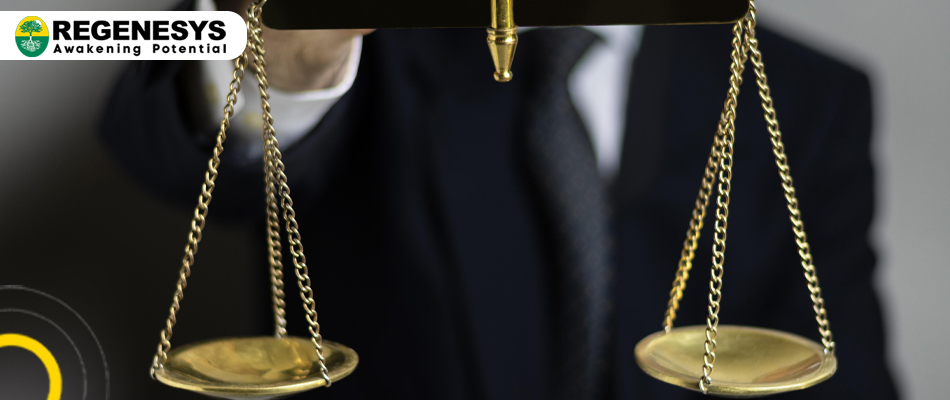Pursuing a Bachelor of Laws (LLB) degree represents a transformative academic journey for individuals aspiring to delve into the intricate world of legal practice. Embedded within this academic odyssey lies a crucial aspect often overshadowed by legal doctrines and case studies—the profound role of ethics.
Table of Contents
Deciphering the Essence of the LLB Degree
The LLB degree, an abbreviation from “Legum Baccalaureus,” commonly known as Bachelor of Laws, stands as an eminent educational pathway laying the groundwork for budding legal minds. This comprehensive programme has various legal disciplines, encompassing constitutional law, criminal law, contract law, administrative law, and more. Its core objective? Equipping students with legal knowledge and honing their analytical prowess is essential for navigating the multifaceted legal landscape.
The Ethical Tapestry Woven into LLB Education
Ethics, often the unsung hero in legal education, occupies a paramount position within the LLB curriculum. Its integration is the bedrock for sculpting future legal practitioners’ ethical compass and professional demeanour. Beyond acquiring legal theories, incorporating ethical principles ignites critical thinking, fostering a deep-rooted understanding of moral dilemmas frequently encountered in law.
The Crux: Ethics in Legal Practice
Why does ethics hold such prominence in the LLB journey? Simply put, it lays the groundwork for instilling a sense of moral responsibility, integrity, and ethical conduct within future legal professionals. Through the study of ethics, aspiring lawyers cultivate a profound sense of duty towards clients, society, and the legal system—a cornerstone for building trust and confidence in the legal fraternity.
Navigating Ethical Quandaries: A Practical Approach
The LLB curriculum provides a platform for students to engage in ethical problems through case studies and simulations. This hands-on pedagogical approach empowers future lawyers to grapple with real-life scenarios, honing their ability to navigate complexities and ethically sound decisions in their future legal careers.
Regenesys Law School
Regenesys Law School is a beacon of innovative legal education in South Africa. Committed to nurturing ethical, knowledgeable, and socially responsible legal professionals, the institution embodies excellence in legal training. With a robust curriculum, interactive learning modules, and a focus on practical application, Regenesys Law School cultivates a holistic understanding of the law. Renowned for its commitment to integrating ethics into legal education, the school offers an LLB programme that not only imparts legal expertise but also emphasises the ethical dimensions crucial for navigating the complexities of the legal landscape. Students at Regenesys Law School benefit from a dynamic learning environment, expert faculty, and a dedication to producing graduates who champion integrity, justice, and legal proficiency in the ever-evolving field of law.
Ethical Emphasis at Regenesys Law School
Regenesys Law School stands as a beacon in acknowledging the indispensable role of ethics in legal education. Our meticulously crafted LLB programme goes beyond imparting legal theory—it prioritises the integration of ethical dimensions within legal practice. Through interactive sessions, workshops, and experiential learning, students at Regenesys Law School are equipped with a profound understanding of ethics and its pivotal role in the legal sphere.
The LLB journey transcends the mere accumulation of legal knowledge—it symbolises the fusion of legal expertise with ethical values. Institutions like Regenesys Law School, through the emphasis on ethics, nurture a cohort of aspiring lawyers who grasp legal intricacies and uphold the highest ethical standards in their practice.
To explore Regenesys’ LLB programme and its ethical underpinnings in-depth, delve into Regenesys Law School.
The integration of ethics within LLB education serves as the bedrock for cultivating ethical consciousness and professional integrity—a fundamental cornerstone for tomorrow’s legal professionals
conclusion
In the realm of legal education, the LLB degree transcends beyond the realms of statutes and cases—it embodies the fusion of legal expertise with ethical principles. The integration of ethics within the LLB curriculum acts as a guiding beacon, shaping the character and conduct of aspiring lawyers. Institutions like Regenesys Law School stand at the forefront, recognising the indispensable role of ethics in legal education. Our LLB programme equips students with legal acumen and instils a profound sense of ethical responsibility. As future legal practitioners embark on their professional journey, the ethical foundation laid during their LLB education becomes the cornerstone, guiding their decisions and actions, ensuring a commitment to integrity, morality, and excellence in the legal profession.
The Role of Ethics in Bachelor of Laws (LLB) Education – FAQs
Why is the integration of ethics crucial in LLB education?
Integrating ethics within LLB education is paramount as it serves as the moral compass guiding future legal practitioners. Ethics instilled during LLB studies moulds students’ ethical decision-making abilities, fostering a sense of responsibility, integrity, and professionalism vital for the legal profession.
How does studying ethics benefit LLB students in their future legal careers?
Studying ethics equips LLB students with the ability to navigate complex ethical dilemmas frequently encountered in legal practice. This knowledge empowers future lawyers to make informed, ethically sound decisions, enhancing their credibility and fostering trust with clients and the legal system.
What practical approaches are undertaken in LLB programmes to teach ethics?
LLB programmes often incorporate practical approaches such as case studies and simulations. These hands-on learning experiences enable students to engage with real-life ethical scenarios, honing their critical thinking skills and preparing them to address ethical challenges in their future legal careers.
How does Regenesys Law School incorporate ethics into its LLB programme?
Regenesys Law School recognises the pivotal role of ethics in legal education. Their LLB programme is meticulously designed to integrate ethical principles into the curriculum. Through interactive sessions, workshops, and experiential learning, students at Regenesys Law School develop a deep understanding of ethics and its application in legal contexts.
Why is ethical conduct crucial for legal professionals?
Ethical conduct is fundamental as it fosters trust and confidence in the legal system. Upholding ethical standards ensures fairness, integrity, and respect for the rule of law. It also maintains the credibility of legal practitioners, promoting a just and transparent legal environment.
How does an emphasis on ethics differentiate institutions like Regenesys Law School in LLB education?
Institutions like Regenesys Law School set themselves apart by prioritising ethics as a foundational element of their LLB programme. Their emphasis on integrating ethical dimensions into legal education ensures that graduates possess legal knowledge and exhibit a solid ethical compass, distinguishing them as moral and responsible legal professionals.






